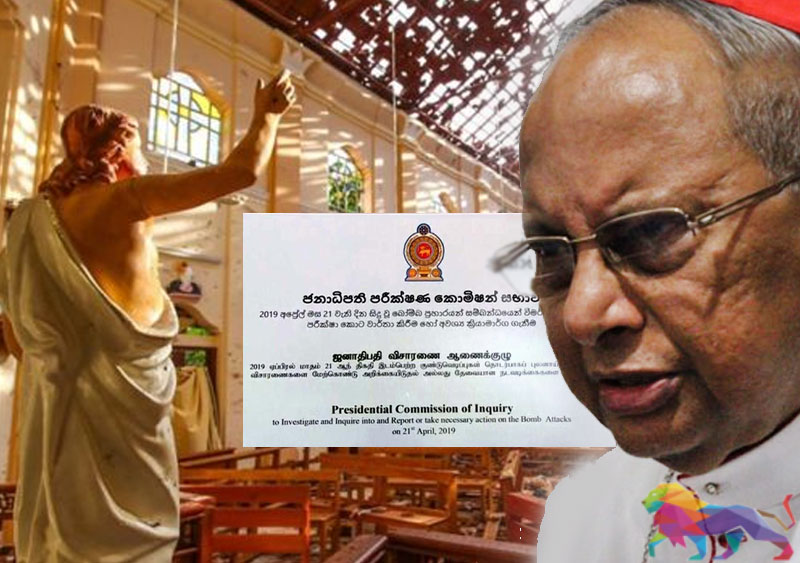The Catholic church in Sri Lanka will raise black flags on August 21 to express their ‘pain and disgust’ over the government’s handling of the deadly 2019 Easter Sunday attacks that killed over 270 people, including 11 Indians.
Malcolm Cardinal Ranjith, the Archbishop of Colombo, said they will raise black flags on their homes, offices, businesses and vehicles to seek justice for the victims, a statement said on Saturday.
‘It is now clear that the government is not interested in revealing the truth, they want to sweep the whole attack under the carpet and wash off their hands,’ Ranjith said, adding that they were protesting to express their ‘pain and disgust”.
He alleged that the current government, which pledged before the 2019 election to bring to book the culprits, is now indulging in doing politics on the dead bodies of the victims.
Nine suicide bombers, belonging to local Islamist extremist group National Thawheed Jamaat (NTJ) linked to ISIS, carried out a series of blasts that tore through three churches and as many luxury hotels in Sri Lanka, killing over 270 people and injuring more than 500 people on April 21, 2019.
The Catholic church has been demanding that action be taken against former president Maithripala Sirisena and ex-prime minister Ranil Wickremesinghe for their failures to prevent the suicide bombings.
The local Catholic church is demanding justice for the victims, asserting that no action has been taken against Sirisena and Wickremesinghe despite a commission of inquiry finding both of them culpable for their failures to prevent the attack.
The Cardinal expressing unhappiness on the status of the investigation says that politicians have not been able to put a stop to murder, disappearances, political victimisation and abductions. “They appointed various commissions from time to time but people are still to know the truth,” he said.
The government maintains that investigations are proceeding. Early this week, the government announced that 23,270 charges against 35 people have been filed in connection with the attack.
The charges filed under the Prevention of Terrorism Act (PTA) include conspiring to murder, aiding and abetting, collecting arms and ammunition, and attempted murder. The Attorney General’s Department said that the Chief Justice has been asked to appoint a special high court bench to hear the cases speedily.
Sri Lankan police have arrested hundreds of suspects in connection with the suicide bombings.
The Buddhist-majority nation was about to mark a decade since ending a 37-year-long Tamil separatist war in May 2009 when the suicide bombings in 2019 rocked the country.
The attacks caused a political storm as the then government headed by president Sirisena and prime minister Wickremesinghe was blamed for its inability to prevent the deadly attacks despite the prior intelligence made available on the impending terror strikes.
During his tenure, Sirisena formed a presidential panel to probe the attacks.
In its report, the panel said that former president Sirisena and a host of other top defence officials, including former defence secretaries, former IGPs and intelligence chiefs, were guilty of ignoring prior intelligence. The panel report recommended criminal action against them.
Both the then-police chief and the top defence bureaucrat were sacked and arrested for their inaction to prevent the attacks.
Then Prime Minister Wickremesinghe was also blamed for turning a blind eye to the rising Islamic militancy. It was cited as an encouragement to the extremists. Both have denied responsibility.
Source:PTI CORR PMS AKJ PMS PMS


